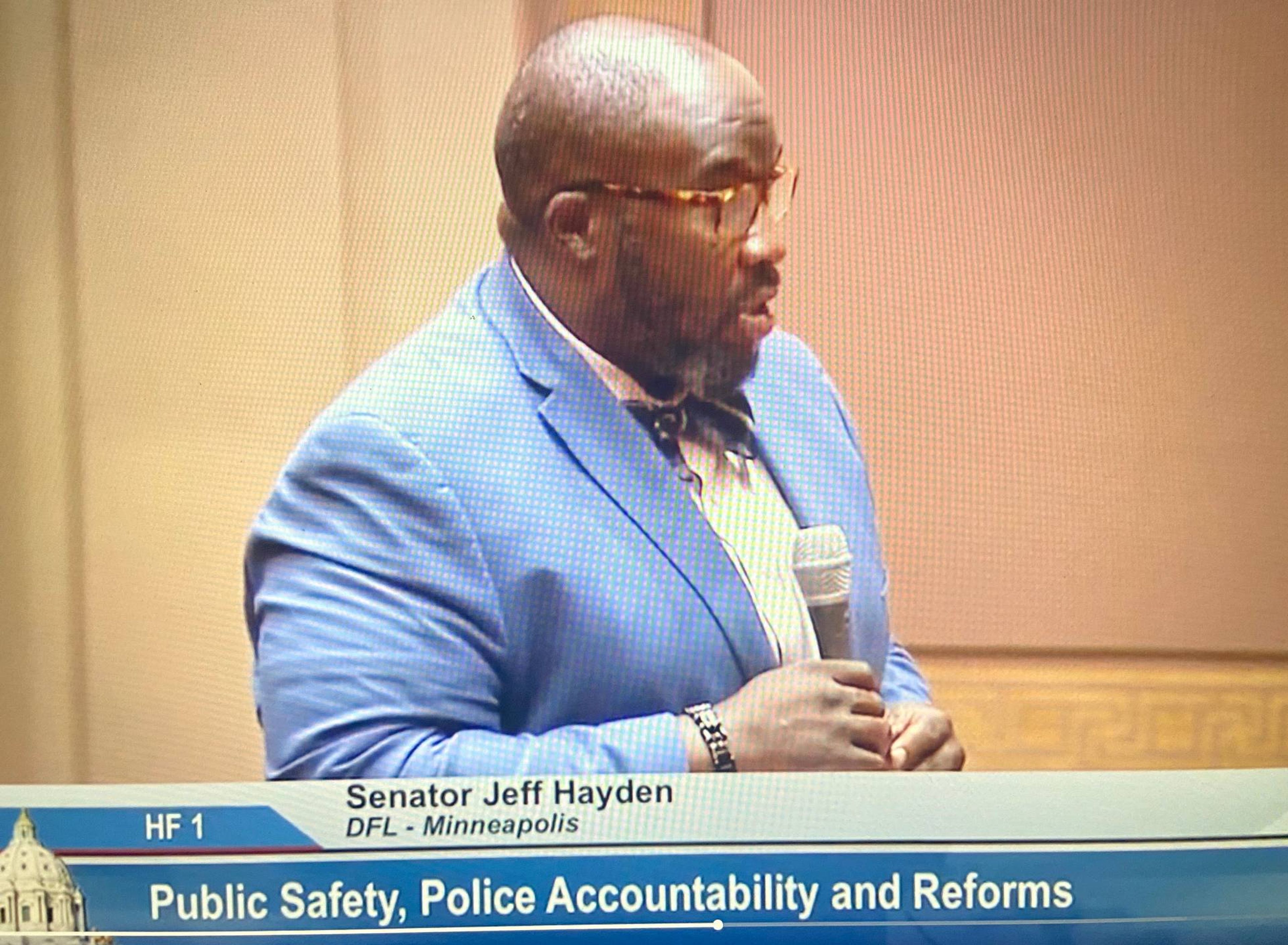A police reform bill was signed into law. What's in it?
Story published: July 28, 2020
Gov. Tim Walz signed a police reform package into law on July 23, 2020. Following the police killing of George Floyd, the bill bans chokeholds like the one used by ex-MPD officer Derek Chauvin, prohibits warrior training, requires a duty to intercede, and reforms data collection and the board governing police officers.
Leaders from the People of Color and Indigenous Caucus from the Minnesota Legislature gathered with the governor to mark the occasion after months of tough negotiations. Rep. Rena Moran (DFL-St. Paul) said it's the “beginning, not the end.” Rep. Carlos Mariani (DFL-St. Paul) called the new law the “first and long overdue act to advance human rights of all people."

Sen. Jeff Hayden, a Democrat from Minneapolis, survived a leadership shakeup in the caucus and was a key leader in getting police reform passed. "I serve at the pleasure of the caucus, and they asked me to continue in leadership," he said. "And then in light of what has happened in my district - the George Floyd murder - I think that I've been grateful to have a seat at the table. And hopefully our caucus and my district have been grateful because I think that I bring a particular kind of viewpoint, being an African-American man, than anyone else who's in leadership."
Earlier this year, the Senate DFL Caucus replaced rural Democrat Tom Bakk with suburban Democrat Susan Kent as its minority leader, but retained Hayden as assistant minority leader - the only person of color in a top leadership position at the State Capitol. In his role helping to implement change in Minnesota, he said that he's proud to be part of these important discussions.
Senate Republicans in the majority were clear about their intentions to avoid defunding or dismantling the police. Sen. Warren Limmer (R-Maple Grove) described the bill as “a product of compromise, as well as a good conversation regarding the future of Minnesota policing." Republican Senate Majority Leader Paul Gazelka concluded: “This is the very essence of what we do here, take many ideas and work together, Democrats and Republicans, House and Senate, to actually pass something that makes a difference, and I do think this bill will make a difference."
But Hayden offered criticism. “There isn’t enough teeth in the issues. For instance, we [only] have some language around a residency requirement." Regarding the choke hold ban, he said that police can still use it in extreme emergencies: "That becomes subjective, and people become very, very leery of smart lawyers." But he has heard good feedback on new provisions to train police officers on how to interact with people who have Autism Spectrum Disorder.
DFL House leaders say they’re committed to passing more police reform and continuing to address inequalities in the state. "A house divided cannot stand," said DFL House Majority Leader Ryan Winkler. "Minnesota has suffered a severe reputation hit in the world. And it's because we have revealed the truth of our state, which is that we are among the worst when it comes to racial equality - and that cannot continue."
George Floyd’s police killing has inspired countless artists across the globe to create murals in his honor, works that also call for justice and anti-racism reform. And that’s left a lot of people wondering what will happen to the works of art – many created on temporary surfaces such as plywood panels – when communities start to rebuild. Students and professors at the University of Minnesota have created an online database that aims to catalog these expressions so they can be studied for years to come.
George Floyd’s police killing has brought together communities in a show of resilience – but it’s also revealed deep-seated racial inequities in access to healthy food now that the Lake Street area, where many grocery stores were damaged or destroyed, has become a food desert. Almanac reporter Kyeland Jackson examines how that lack of food access is actually rooted in racism-charged issues related to access to jobs and opportunities to build wealth.
In 2019, Taylor Kueng (who identifies as gender non-binary) witnessed the arrest of two Black men in downtown Minneapolis. Taylor and their friend filmed the incident until they were both also arrested by police. One year later, a different video implicated their brother, former officer Alex Kueng, in the police killing of George Floyd. Discover how one family has been impacted by two different videos that captured police force.
